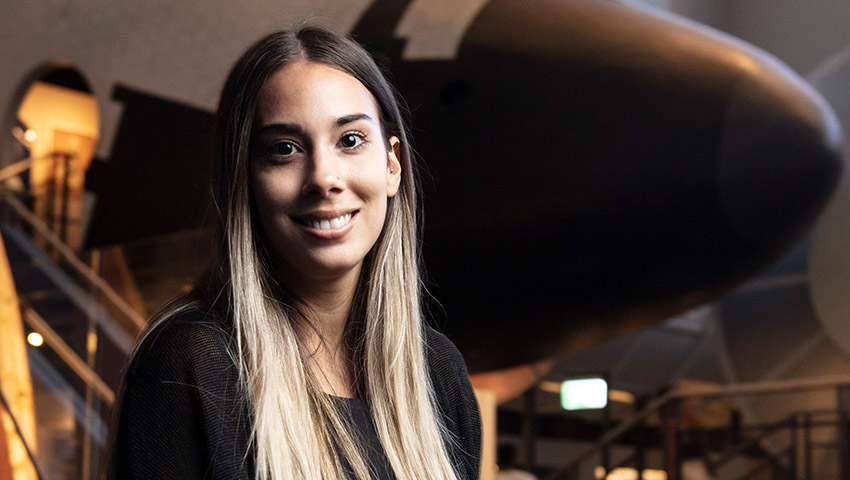When proud Gangalu woman, Boeing Systems Engineer Taylah Griffin, 26, was growing up in small, rural sugarcane town Gordonvale, in Far North Queensland, she’d had little exposure to aircraft.
Intrigued, she became passionately interested in all things space and flight technology. “It was all new and different and inspiring,” Griffin said.
This thirst for knowledge saw Griffin achieve the unthinkable – she became the first person in her family to go to university, at QUT in Brisbane.
Her path to success wasn’t easy. She was her forced to overcome significant barriers – including the isolation caused by having to move away from her family and her community – but she had the foresight to surround herself with equally ambitious people from a young age.
“I surrounded myself every day with like-minded, young Indigenous people, all looking to better themselves and our people through education.”
Ever the trailblazer, Griffin’s passion, smarts and tenacity saw her recently become the first Indigenous person to graduate from QUT with a Bachelor of Electrical and Aerospace Engineering (Honours).
She then achieved her ambition to work at Boeing Defence Australia, as part of the world’s largest aerospace company, where she’s a member of the Wedgetail AIR 5077 Phase5A upgrade program team.
Now, Griffin’s determined to help other young Indigenous people to achieve their dreams. “My love for both my culture, and for STEM, are my motivations,” she said.
She’s passionate about her community, encouraging young women and Indigenous students to pursue science, technology, engineering and maths (STEM) and being a shining example of the world of opportunities open to regional students.
Griffin, as part of Boeing’s innovative Reconciliation Action Plan (RAP), undertook a school engagement program in Far North Queensland aimed at igniting high school students’ interest in STEM. She recently revisited her hometown of Gordonvale, along with Innisfail, Woree and Cairns, where she encouraged more than 600 secondary school students to study STEM subjects.
The school visits engaged year 7 to 12 students in a variety of activities ranging from designing paper planes to basic aeronautical engineering principles and hearing from a panel of professionals who shared their STEM career success stories.
Boeing’s RAP provides a framework to drive meaningful change for Aboriginal and Torres Strait Islander peoples based on demonstrating respect for Indigenous Australian’s cultures and history, creating meaningful relationships and providing opportunities that contribute to Closing the Gap between Indigenous and non-Indigenous Australians.
“Boeing is proud to be a leader in diversity and inclusion in the defence and aerospace sector,” said BDA’s acting vice president and managing director, and RAP executive sponsor, Scott Carpendale.
“We are incredibly proud of Taylah and her amazing efforts in inspiring the next generation of STEM graduates, along with the many other innovative programs we are supporting through our RAP.
“By committing to a RAP and following through on those commitments, we will realise positive benefits for our business and contribute to driving meaningful social change for Indigenous Australians.”
Griffin’s many outstanding achievements have not gone unnoticed. She was recently awarded the 2018 CSIRO Aboriginal and Torres Strait Islander Tertiary Student STEM Achievement Award and the Women in Defence Rising Star Award.
“By recognising the Indigenous achievements in STEM, we’re putting a spotlight on Indigenous excellence and highlighting to young Aboriginal and Torres Strait Islander Australians that STEM education and STEM careers and STEM excellence are all completely achievable,” she said.



